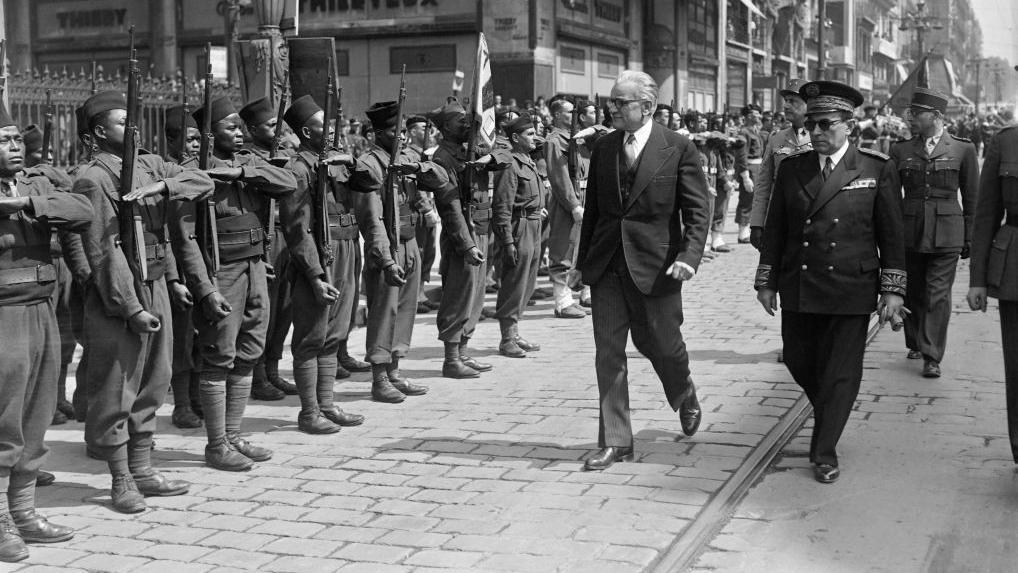In a significant development, France has officially recognized that its soldiers were responsible for a “massacre” of Senegalese troops, specifically those from the Tirailleurs Sénégalais unit, nearly 80 years ago. This acknowledgment comes from Senegalese President Bassirou Diomaye Faye in light of historical tensions stemming from the events that transpired in December 1944. The Tirailleurs Sénégalais were initially recruited at the onset of World War II to support France in its military efforts. When these troops returned to Senegal after their service and subsequent liberation from German captivity, they were discontent with their compensation and treatment, which ultimately led to violent repercussions from French colonial authorities.
The context of the tragedy lies within the broader colonial history, where the Tirailleurs Sénégalais were not only comprised of Senegalese soldiers but also included individuals from various nations across France’s former African empire, including Mali, Guinea, Niger, Benin, and Chad. Following their return to Senegal, the demobilized troops were stationed at the Thiaroye military camp, located just outside the capital, Dakar. Historian Armelle Mabon notes that these soldiers had long expressed grievances regarding their pay, which was markedly lower in comparison to that received by other French soldiers. This anger intensified once they reached the military camp, leading to what colonial authorities viewed as a mutiny.
On December 1, 1944, following growing protests over unpaid wages, the French military resorted to violence, resulting in reports of 35 deaths among the protesting soldiers. However, the actual number of casualties has been contested, with estimates suggesting that as many as 400 may have perished in the violent crackdown. This incident, historically referred to as the Thiaroye Massacre, has been a source of ongoing contention in France-Senegal relations. President Emmanuel Macron’s letter to Faye, acknowledging the tragic events as a direct result of the soldiers demanding their rightful wages, represents the first acknowledgment of such magnitude by a French leader. Previously, President François Hollande had referred to the incident as a “bloody repression” but did not classify it as a massacre.
Senegal is approaching the 80th anniversary of the shootings with plans for recognition and historical reflection. In response to Macron’s acknowledgment, Faye described it as a potential starting point for uncovering the full truth surrounding the Thiaroye incident, emphasizing a desire for closure and possibly seeking a formal apology from France. This moment marks a notable opportunity for dialogue and healing in the wake of historical grievances. Faye has expressed hope that France’s commitment to transparency regarding this painful chapter will be genuine and collaborative.
In a broader context, Faye, who recently took office, has also commented on the ongoing presence of French military bases in Senegal 64 years after the country gained independence. He has called for the closure of these bases, arguing that the existence of foreign military establishments contradicts Senegal’s sovereignty. This sentiment resonates with a growing discourse on the need for African nations to assert their autonomy and reconsider the legacies of colonial relationships. The call for the removal of foreign military presence, particularly that of former colonial powers, reflects a pivotal shift in Senegal’s approach to its post-colonial identity.
As Senegal prepares to commemorate the anniversary of the Thiaroye Massacre, the evolving narrative between the two nations presents a moment of potential transformation. The acknowledgment of the massacre by France can be perceived as a step toward reconciliation and a re-evaluation of the colonial past. This renewed dialogue could pave the way for not only historical acknowledgment but also a rethinking of the contemporary relationship between France and Senegal, with implications for broader discussions on sovereignty, reparations, and the legacy of colonialism in Africa. The Thiaroye incident serves as a poignant reminder of the complicated and often painful histories that continue to shape relationships between former colonial powers and their former colonies.

